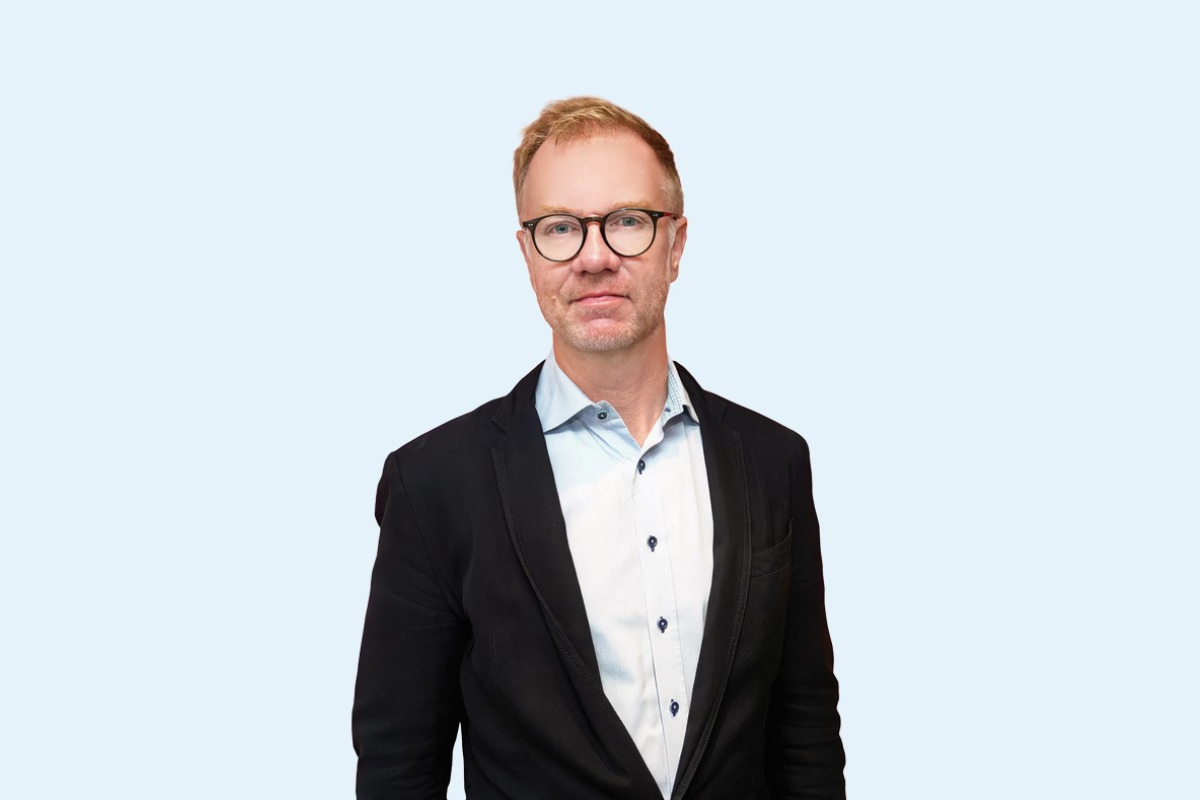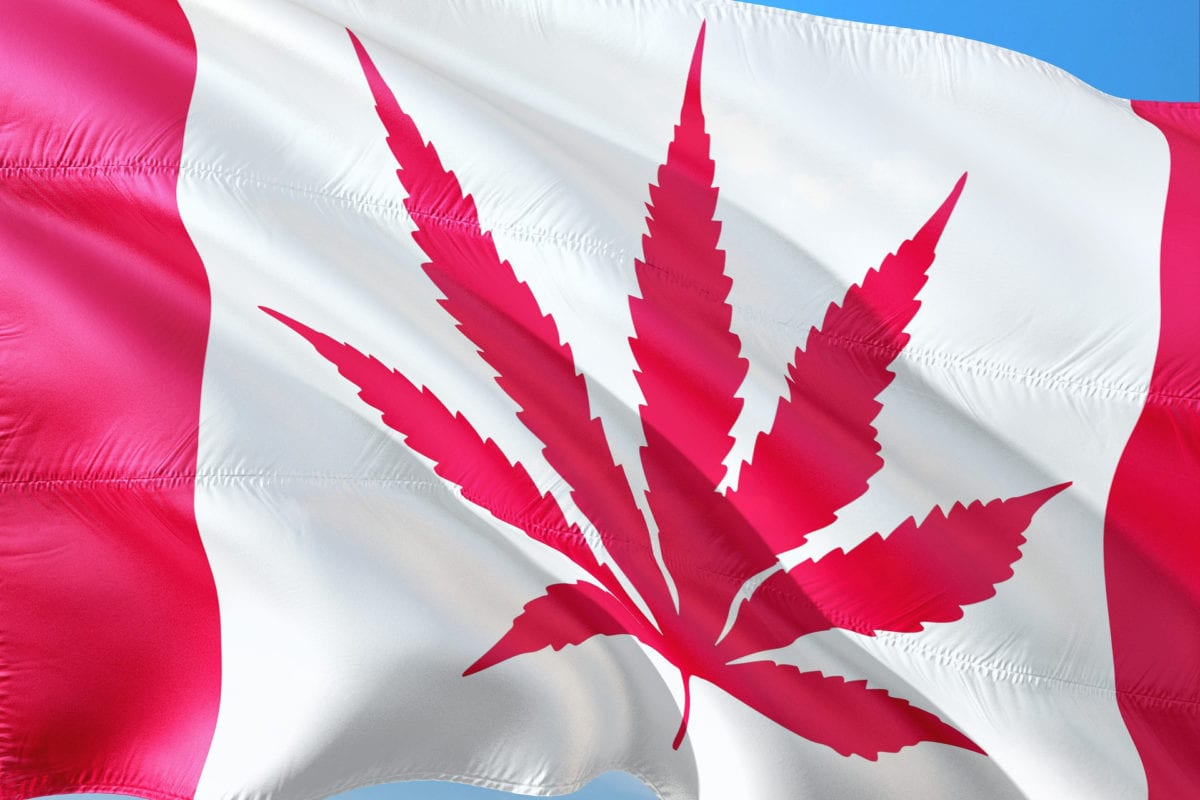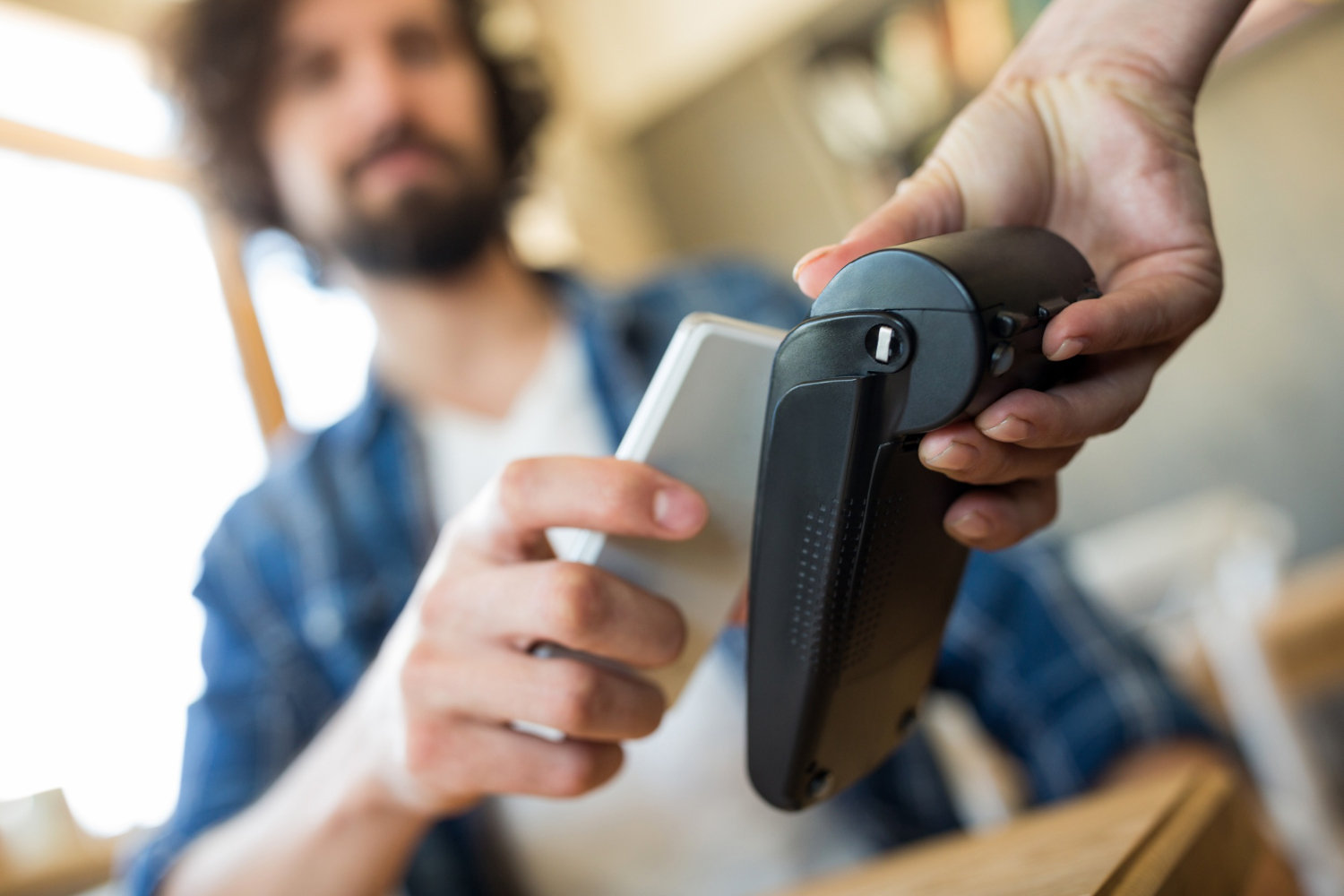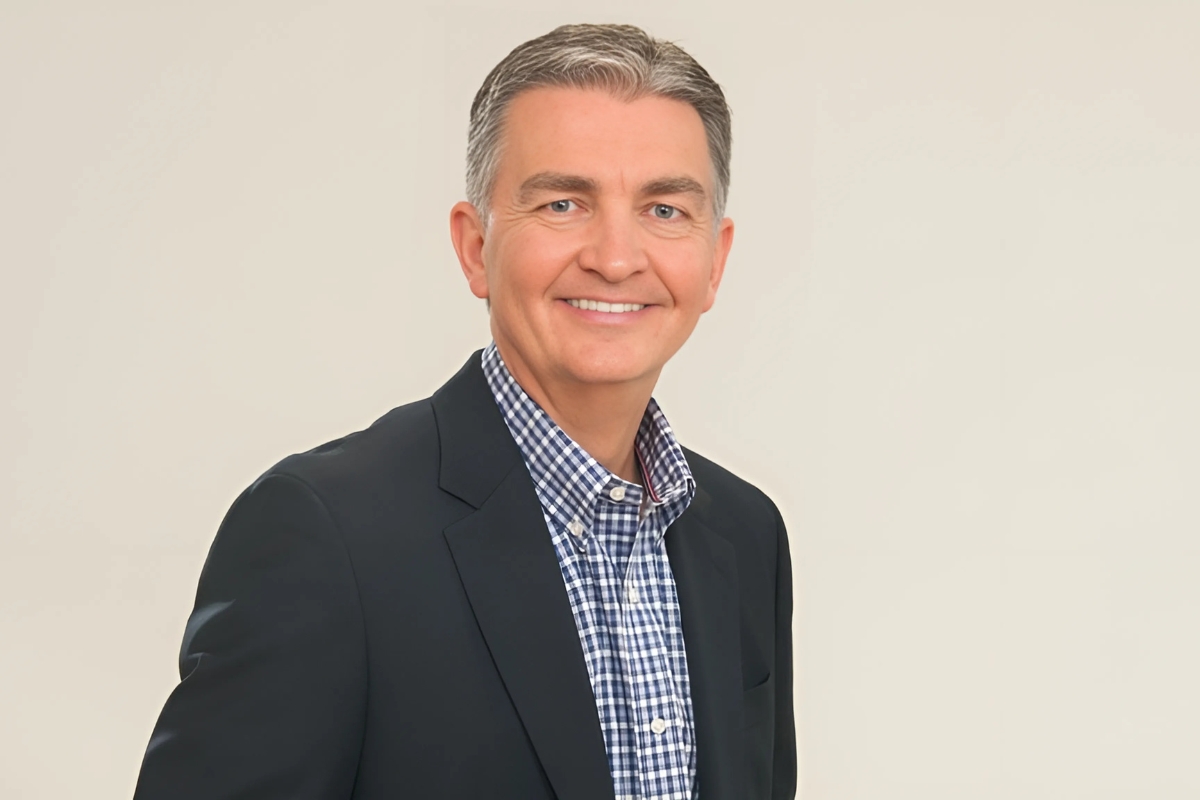Tareq Hadhad and his family’s story is by no means ordinary. It is a story of rising from rock bottom by relying on community and togetherness to move forward. While Hadhad was in his native Syria, his family’s chocolate company, Peace by Chocolate, became the second largest chocolate company in the Middle East in 2008, exporting to the entire MENA region and to countries like Germany, Sweden and the Netherlands. The civil unrest in Syria brought it all to a screeching halt when the Hadhads lost their factory in a bombing. In Canada, which embraced them with open arms, they found the strength to rebuild their chocolate empire. Currently, headquartered in the town of Antigonish, Nova Scotia, Peace by Chocolate now is stocked by countless retailers all over Canada and found in Foodland stores and Sobeys nationwide.
Read on to see what Tareq Hadhad has to say about being accepted by Canada as a refugee, his ambitions to scale the community-building effects of Peace by Chocolate, and his thoughts on peace the world over, the importance of immigrant entrepreneurship and good communication skills for entrepreneurs.
Tell us about your journey from being a refugee with ambitions of becoming a doctor to ending up an entrepreneur instead.
While the journey has been very remarkable, it really has shifted our mindset as a family and me individually about the way I look to the world and to life. Since 2013, we left our home country in Syria and became so-called refugees. I do not believe that anyone in the entire planet should be called a refugee because refugee means you lost your sense of belonging, you lost your identity, you lost your friendships, you lost your family, and you have no home. We need people always to have that sense of belonging back, and countries like Canada […] offered us that opportunity to have our sense of humanity again, back as a family. So, it’s been really interesting.
Our family started making chocolate in Syria in 1986. It was a time when my father graduated as [a] civil engineer, and he did not want to continue in civil engineering. [My family] went to my cousin’s wedding, and at the wedding, everyone was eating chocolate and was smiling and happy and dancing. My father said, “Okay, I found it. I’m going to make chocolate because it’s a symbol of celebration and happiness. Everyone who eats chocolate will be happy. [If] no one eats chocolate, [they] would be sad.” [The] main inspiration for the family is making the world a happier place, is making the world a brighter place, is making the world with more impact.
When we became refugees in Lebanon, we had on our mindset [on getting] back to the things we love. And we lost that. Maybe the fact that we lost it in the war—we lost many things we built in Syria in the war, [but] we did not lose our skills and our talents. We were helping refugees get into primary and secondary and tertiary health care centers to get treatment and we were coming into mobile clinics and prescribing medicines and it was absolutely a great time to get back to things that I loved once, which is becoming a physician. That was my passion. I was correlating between medicine and chocolate in Syria because medicine seeks to diminish the pain for human beings, while chocolate seeks to make people happier. Since the moment that I came here, I realize that as a newcomer, I have a mission that has to be implemented right away. And that mission was to restart our family’s tradition again. So, between becoming a doctor or becoming an entrepreneur, I would say that two choices were absolutely outstanding. They have [both] contributed a lot to my experiences so far. And I don’t regret any path that I’ve chosen.
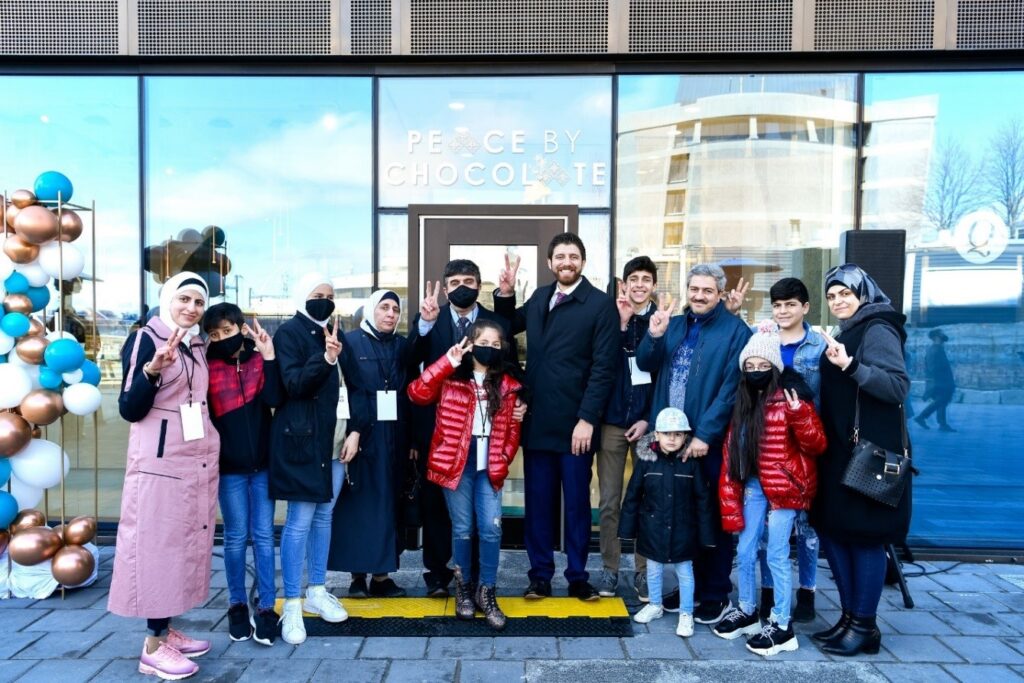
How did the support from Prime Minister Justin Trudeau, highlighting your family story in an address to the United Nations in 2016, help Peace by Chocolate?
When the prime minister was at the United Nations in 2016, we were watching the news like every other Canadian. It was a live speech on CBC. I remember that very well. After 10 minutes of the start of his speech, he started talking about our family. It was overwhelmingly shocking to our family to see our name mentioned at the United Nations at that time. When the prime minister was talking to President Barack Obama, to Angela Merkel, to all the presidents who are sitting in that room, [they] were clapping when the prime minister was saying, “That’s what the Hadhads have done.” Peace by Chocolate before September 20, 2016 was so different than Peace by Chocolate after that speech because it just gave us the platform that we needed to tell our story. And that platform has been by talking about the brand in over 500 media interviews across the country. Doing speeches—I’m a public speaker right now. I [have] travelled around the country and around the world.
What is the future that you envision for Peace by Chocolate in terms of a business venture?
I truly believe in exporting Canadian products to outside the country. Our ambassadorship is all about sending our products to the world to enjoy and to celebrate. As a vital member of the economic society in Nova Scotia right now, our focus is certainly on getting our products shipped outside the country, sent out to as many countries as possible and being on shelves. [We are also] getting ready for that big release of our movie later this year in movie theaters and online streaming platform. The movie is called Peace by Chocolate.
My goal was—since the moment we established a business—to have Peace by Chocolate as one of the top chocolate providers in North America and [to] craft our chocolates with love and peace and spreading it out as a way to cheer people up. To make sense for happiness and also give reasons for, certainly, celebrations. Chocolate is a product for all occasions. We have different styles of products for celebrating peace languages in English and Mi’kmaq and over 14 languages right now. We have products for every season, and we have a campaign and meaningful impact through each campaign. We have many campaigns for harmony. We have many campaigns for resilience. We have many campaigns for welcoming newcomers. We have many campaigns [for] celebrating Indigenous communities called “Nitap,” which means buddy in Mi’kmaq. My main goal is [for] Peace by Chocolate to continue these partnerships with the community. That’s what I want these chocolates to be: something to be on the daily list for all Canadians and to be a proud Canadian brand.
You are an ambassador for peace the world over, having founded a peacebuilding organization called Peace on Earth Society. What do you think are the most important steps that governments need to take to achieve world peace?
There are many steps that every one of us should really take to ensure peace, starting by acknowledging that peace is a noble value, that peace is out there, that peace won’t be tangible until we lose it. [For] example, we are healthy people. We do not think about diseases until we get them. [Similarly] no one thinks about peace because we have it all the time and it’s with us. When we lose it during the war, when we lose it during conflict, then we will appreciate it way more. As a family who lost their sense of peace for over a decade in the Syrian war, we wanted to give Canadians an idea that losing peace means losing life, and losing peace [means] losing your belief in humanity because at a certain point you will be counting down to death. And certainly, peace is not only [measured] by the absence of force, but also by the existence of understanding and connections between human beings.
I’m very engaged into Canadian politics; I know exactly what happens […] every day and keep watching because I know that from something very simple can grow […] a major conflict. I keep watching and I keep advocating for the cause of peace. And certainly, making sure that Canadians are [taking] the right step, starting [with] reconciliation. As Mi’kmaq and Indigenous communities around the country have been suffering for so long, it is time really to focus on celebrating reconciliation because it is true ground for all Canadians to come together.
How do you feel we can empower new immigrants so that they feel ready to embrace entrepreneurship as a career choice?
They have massive opportunity to restart [from] where they left [off] back home and to rebuild their lives here because the regulations are very supportive for newcomers to restart their businesses, to restart their lives, to get into universities, to get into schools, [and] to learn languages. Never waste a moment [from] the time that newcomers arrive here. They should be always integrated into communities and events and studies and everything that they can do. They are all excited about it. It’s an opportunity for them to give another meaning for their [lives]. And that’s why they immigrate to Canada in the first place: because they want to build a brighter future for themselves and their families. No one comes here to take. Everyone comes here to contribute. That’s why Canada is an amazing country. When I arrived in Canada, I was greeted at the airport, given my permanent residence, [given] exactly the same rights as every Canadian citizen: the right to work, the right to get [an] education, the right to live peacefully, [and] the right to freedom.
Given that you have now become an influential public speaker at various events, how important do you think it is for an entrepreneur to develop their communication skills?
Very important. If you were to rank the skills that an entrepreneur should have, communication should come to the top because without communicating your own story and your own mission to the public, how would you [expect] that they [would come] to ask you about it? How do you [expect] that they [would want] to take it as part of their life? When someone buys your product, it’s not only because of the product, it’s because of the vision and the mission and the brand. And building the brand will not happen without having strong communication skills, by speaking publicly about it every single day [from] the time that you open your eyes [to] the time that you close them. You should always be thinking, talking, celebrating, mentioning, adding something new to it and making new connections about it. It is always part of public speaking or even communicating with your smaller connection circles.
Right now, at any moment, we can—just by one click—reach anyone from around the planet. We don’t have to wait for a month until our mail arrives there. It’s not like 100 years ago. The world has changed significantly and it’s all for the benefit of us, so let’s use it. Because if you’re not out there on the communication and social media and in the public spectrum, then no one is going to know about your brand. And that’s going to be the start of the decline to your valley. Because in business, there are peaks and there are valleys. When you are in the valley, then you appreciate the peaks more, and you’ll get prepared for the next valley. You need that communication to get out of the valleys and get to the peaks again.
Arslan Ahmed | Staff Writer









